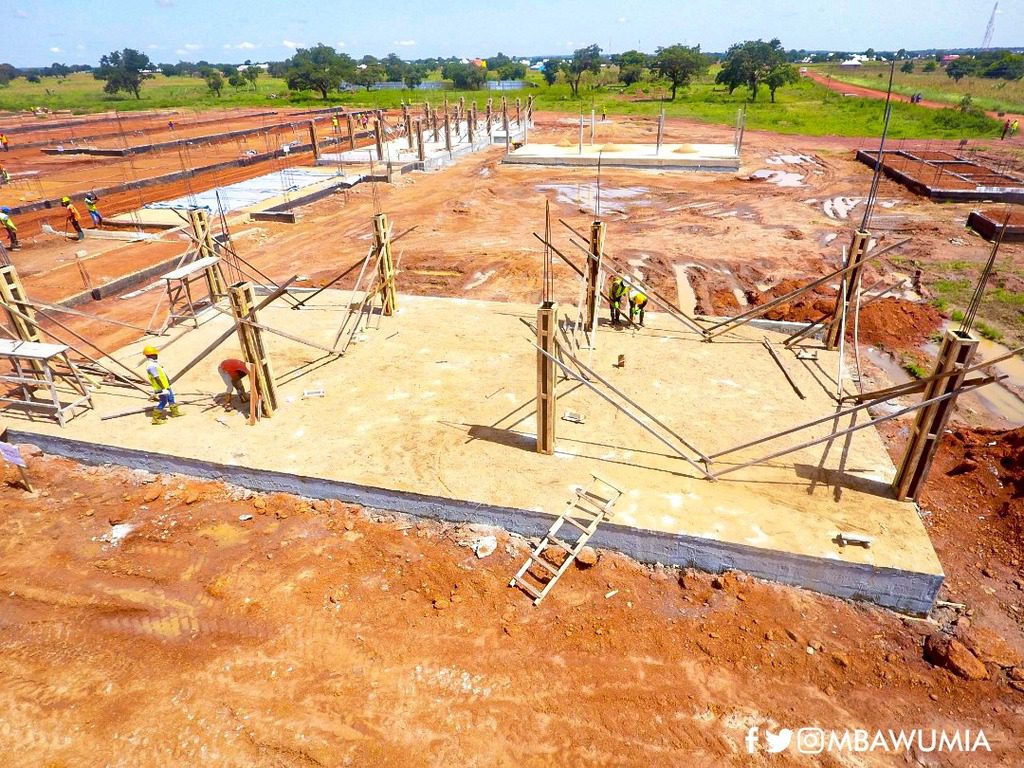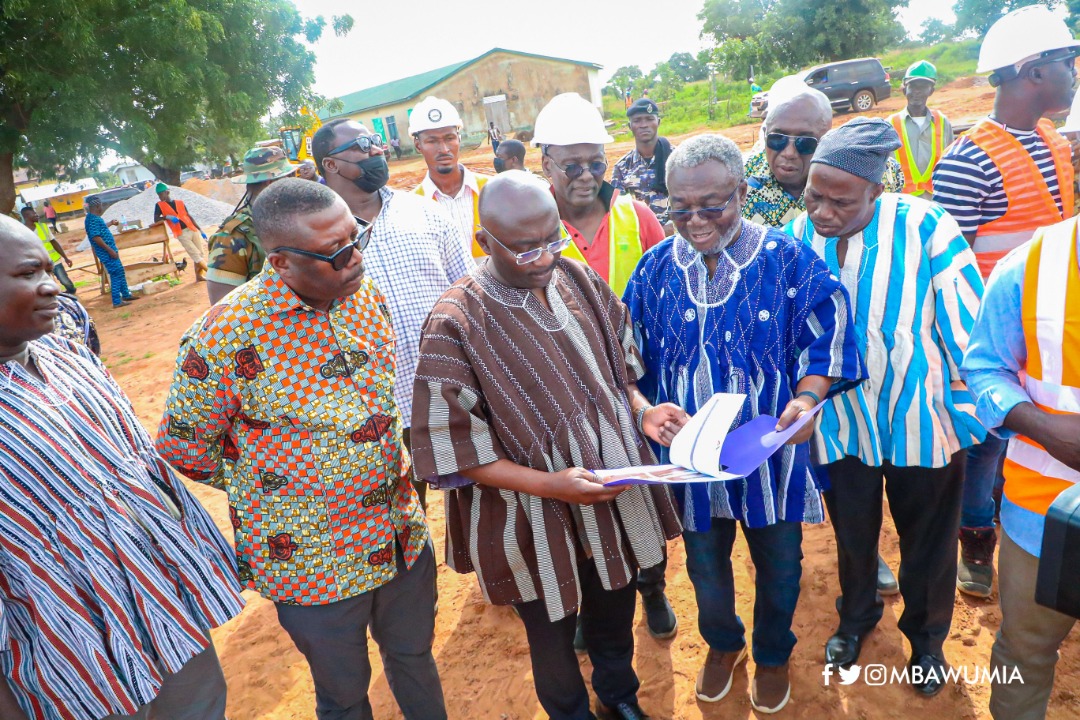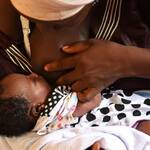Vice-President Dr Mahamudu Bawumia says Agenda 111, is the result of government’s determination to close the gaping lack of access to healthcare facilities, especially in remote areas of the country.
Inspecting progress of work done on dozens of new hospitals under construction across the country, Dr Bawumia said this is the first time a concerted effort has been made to ensure that every Ghanaian, irrespective of where they live, has access to a quality health facility within a relatively short distance.
He was speaking at Bunkprugu in the North East Region where he inspected the progress of work.
“The Agenda 111 Project is to bridge a 60 year gap in access to health facilities across the country. 90 districts in our country do not have District Hospitals.
“Six Regions do not have Regional Hospitals. Large parts of our country do not have access to Specialist hospital facilities and services. This is despite over 60 years of being Independent.
“So the government of Nana Addo Dankwa Akufo-Addo took the bold decision to build these hospitals and meet the health care needs of the people of Ghana, to ensure that every District has a hospital and every Region has a Regional Hospital.
“This will greatly increase access to health care, prevent avoidable, preventable deaths and reduce the suffering of our people,” he added.
Dr Bawumia had earlier inspected ongoing works at Savelugu and Yendi, both in the Northern Region, as part of the first leg of his working visit to the five northern regions of Ghana.
He was accompanied by Dr Anthony Nsiah Asare, Presidential Adviser on Health, Hon Ambrose Dery, Minister for the Interior, and other government officials.
Barriers to access healthcare
Inadequate health facilities, long distances to reach them, lack of effective and efficient transportation systems remain barriers to access healthcare in Ghana.

90 districts without hospitals
It is shocking that 90 districts in the country do not have district hospitals.
Scope of Agenda 111 projects
The Agenda 111 project involves the construction and/or upgrading of 101 district hospitals, construction of six regional hospitals in the newly created regions, two specialised hospitals in the middle and northern belts, as well as a regional hospital in the Western Region and renovation of the Effia-Nkwanta Regional Hospital.
Construction work ongoing on 87 projects
The Mid-Year Review Budget revealed that construction work is ongoing at 87 out of the 111 sites earmarked for the Agenda 111 project.
To address this injustice, the government decided to build 111 hospitals across the country.
Breakdown of the projects
The project involves the construction of 100-bed 101 District Hospitals, 160-bed six Regional Hospitals in newly created regions, one Regional Hospital in the Western Region, 90-bed Psychiatric Hospitals in Kumasi and Tamale, Rehabilitation of Effia Nkwanta Regional Hospital in Sekondi and the Redevelopment of the Accra Psychiatric Hospital.
Regional breakdown of district hospitals
The Regional breakdown of district hospitals are; Ashanti-10, Volta-9, Eastern-8, Greater Accra-7, Upper East-7, Oti-5, Upper West-5, Bono-5, Western North-5, Savanna-3, Bono East-2 and North East- 2.
Staff accommodation
All hospitals shall have a compliment of staff accommodation.
$17.60m as cost for each district hospital
Each of the hospitals would be built at the cost of $12.8 million and another $4.8 million would be spent to equip them bringing the total cost of each of the hospitals to $17.60 million.
On Tuesday, August 17, 2021 President Nana Addo Dankwa Akufo-Addo cut the sod for the commencement of the construction of the Trede District Hospital in the Atwima Kwanwoma district of the Ashanti Region.
25,000 employment construction phase
It is estimated that 25,000 people will be employed during the design and construction phase of the 111 hospital providing direct jobs to architects, masons, carpenters and other construction workers in the country.
20,000 health professionals to be employed
Once completed, about 20,000 health professionals including doctors, specialists, nurses and other allied health workers will be employed thus reducing the unemployment rate in the country.
Unparalleled opportunity to transform healthcare system
The District Hospitals under the Agenda 111 programme presents an unparalleled opportunity to transform the country’s health care system creating a new standard on the continent.
Access to quality healthcare services
The objective of this project as envisioned by the President is to ensure that Ghanaians in every district and region in the country have access to quality healthcare services.
Achieving Sustainable Development Goal 3
The proposed project will boost the provision of healthcare infrastructure in line with the government’s commitment to ensuring universal health care to all citizens and attainment of United Nations’ Sustainable Development Goal 3 (SDG3).
It will further be a fulfillment of the government’s policy of a hospital in each district and region and improve the geographical coverage of healthcare delivery in the country, as well as offer improved access to healthcare for all Ghanaians.
In the process, the outcome will also come with a model of accelerated construction of health facilities developed for future health projects.
On completion, this venture will be the largest investment in healthcare infrastructure in the country since independence.
Never before in the annals of this country’s health infrastructure development has universal access to good and affordable healthcare been so strategically envisioned.
- Tuesday April 16 2024 Newspaper Headlines - 16 April 2024
- Monday April 15 2024 Newspaper Headlines - 15 April 2024
- Friday April 12 2024 Newspaper Headlines - 12 April 2024




